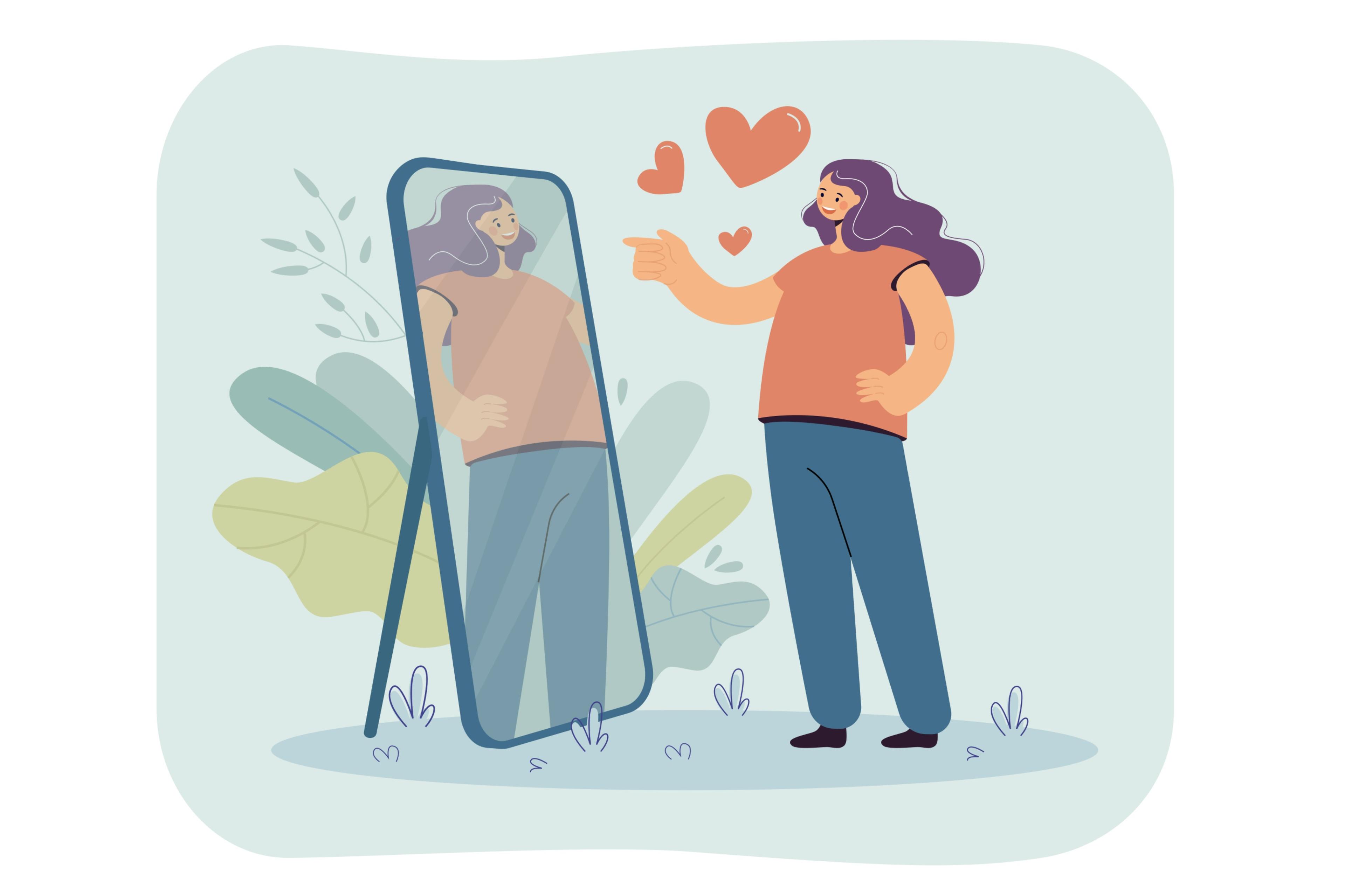Sometimes the word arrives in a group chat at midnight, surrounded by laughing emojis and reaction stickers. Sometimes it drops casually over drinks, tossed across the table like a harmless joke. Someone calls you “chopped” and the room keeps moving, but your body does not. Your mind goes quiet and loud at the same time. You feel your face warm, your chest tighten, and suddenly you are painfully aware of how you look, what you are wearing, how you are sitting. On the outside, maybe you laugh it off or pretend not to care. On the inside, something has been rearranged.
Being labelled “chopped” is not just about one word. It is about what that word carries. It usually suggests that you are not the attractive one, not the chosen one, not the friend people want to be seen with romantically. It turns you into the “before” picture in a room full of “afters”. Even if you know it is unfair and shallow, it still stings, because it presses on a very old fear that many people carry quietly: the fear of not being wanted.
Before thinking about what to say back, it is important to acknowledge what happens inside you when you hear that label. Your first response lives in your body, not in your mouth. Maybe your stomach drops, your shoulders tense, or you feel a wave of shame that makes you want to hide. This reaction does not mean you are weak. It means your nervous system has detected a social threat. Human beings are wired to care about belonging. Any comment that hints you are being pushed down the social ladder will feel intense.
If you can, the first thing to do is give yourself a very small pause. Take a slow breath in and out. Feel your feet on the floor. Notice something solid around you, like the chair under your legs or the glass in your hand. This sounds simple, almost too simple, but it matters. That tiny act of grounding is like switching on a light in a dark room. It does not change what was said, but it helps you see your own feelings more clearly instead of drowning in them.
Once you have even a little bit of space, you have a choice. You do not have to react on autopilot or play along just to keep the mood light. One option is to name what happened in a straightforward way. You might say, “I know you think it is a joke, but calling me ‘chopped’ actually hurts.” Or, “That word makes me feel pretty disrespected.” You do not need a clever comeback or a dramatic speech. Calm, honest language is often more powerful than a sharp retort.
How people respond to that honesty tells you a lot about your relationships. In a healthy friendship, even if the person is initially surprised or embarrassed, they will usually soften. They might say, “I am sorry, I did not realise it came across that way,” or “I did not mean to hurt you.” In that moment, you have the chance to set a clear boundary. You might reply, “I appreciate that. I just do not want that word used on me again.” You are not begging for better treatment. You are describing the minimum standard for how you wish to be spoken to.
Sometimes, though, the reaction is dismissive. You may hear, “Relax, it is not that deep,” or “Why are you so sensitive, everyone gets roasted.” This kind of response can hurt even more than the original comment, because it suggests that your feelings are an inconvenience. When that happens, try to remember that you are not overreacting just because you want basic respect. You are noticing that this person is more committed to protecting the joke than protecting your dignity. That is important information, even if it is painful.
Not everyone can speak up in the moment. You might freeze, laugh along to blend in, or quickly change the subject. Maybe you are the only one who got singled out, and you do not want even more attention on you. If that happens, it does not mean you have failed yourself. It means you did what felt safest in that situation. You can still respond later, when you have had time to process. A message like, “Hey, something from earlier has been bothering me. When you called me ‘chopped’, it really hurt. I do not want to be spoken about like that,” can open the door to a more thoughtful conversation.
It is also worth zooming out and looking at the pattern, not just the isolated moment. Is this the first time this word or something similar has been used on you, or is it part of an ongoing culture where your looks, body, or dating life are constant material for jokes? Are you often framed as the “funny but not attractive” friend, the one people come to for emotional labor but not romantic interest? If the label “chopped” is sitting on top of a whole tower of small humiliations, then your discomfort is not about one sentence. It is about the role you have been slowly assigned without your consent.
This is where your environment at home matters more than it seems. After an evening where you have been labelled in a way that makes you feel small, it can help to create a sense of safety and softness for yourself. When you come home, you might change into clothes that feel good on your skin, wash your face slowly, or make a simple warm drink. These actions might look ordinary from the outside, but they are tiny acts of repair. You are telling your body, “I know that hurt. You are safe with me.”
Writing can also be a powerful way of responding, especially if you do not feel ready to confront anyone yet. Take a notebook or your notes app and gently document what happened. Who said it, what was the context, how did you feel in the moment, what did you wish you could have said. Then add a second layer, where you challenge the meaning you attached to the word. You might write, “They called me ‘chopped’. That does not mean I am unlovable. It does not mean I will always be the last option. It means they are using a shallow rating system, and I do not have to let that system run my life.” In doing this, you are separating their language from your identity.
Because this label is so tied to attractiveness and desirability, it can easily trigger the urge to change your entire appearance. You might suddenly want to restrict your eating, book a long list of beauty treatments, or obsessively compare yourself to people on social media. Before you act on these impulses, pause and ask yourself where they are coming from. Were these changes already aligned with your own sense of style, health, and joy, or are they a panicked reaction to someone else’s careless comment? You deserve to make choices about your body and appearance from a place of care, not from a place of punishment.
A more grounded response is to reconnect with what already makes you feel most like yourself. Think about the clothes that make you stand a little taller, not because they impress others, but because they feel authentic on you. Think about the people in your life who make you forget to perform, the ones around whom you laugh loudly and do not suddenly become self conscious. You can even create a simple ritual of appreciation for your body as it is right now. That might look like stretching slowly in your living room, dancing to a song that makes you feel alive, or looking in the mirror and saying something kind, even if it feels awkward at first. You are training your brain to treat yourself as more than a rating.
Responding to this label also involves making choices about which spaces you continue to invest in. If a group of friends regularly uses words like “chopped”, “mid”, or other ranking language, and your repeated attempts to express discomfort are brushed off, you are allowed to step back. You can mute the group chat, decline some invites, or stop offering so much energy to people who treat your feelings as a punchline. You do not have to make a dramatic announcement or cut everyone off overnight. Sometimes the healthiest response is simply to reallocate your time toward people who see you as a full person, not as a character in their comedy routine.
If you have a trusted friend within that circle, you might also choose to talk to them privately. You could say, “I know our group jokes a lot, but I have been feeling pretty targeted by comments about my looks. When people call me ‘chopped’, it weighs on me. Do you notice this too?” A conversation like this can serve two purposes. It gives you emotional support, and it might also help shift the culture if more than one person is uncomfortable. Often, others have felt the same way but did not want to be the first to speak.
There is another uncomfortable truth that is worth facing with compassion. Many of us have used similar language about other people, especially in our younger years or in online spaces where it felt detached from real human impact. We might have rated strangers, joked about someone’s appearance, or participated in conversations that reduce people to a scale. Having the word “chopped” thrown at you can be a wake up call. If you recognise that you have played that role before, you can let this moment change you. The next time someone sends a picture and asks for a rating, you can set a new tone. You can say, “I am not comfortable talking about people like that,” or even share, “I got called that recently and it really stuck with me. I do not want to contribute to that energy anymore.”
This shift does not erase the hurt, but it transforms it into something with more meaning. Instead of letting the label close you up, you are letting it open your empathy. You become someone who knows exactly how sharp these “jokes” can feel when they land on a real person with a real inner life. That awareness can ripple outward in small but powerful ways.
At the core of all of this is the recognition that you cannot control the language other people bring into the room. There will always be trends, slang, and social media jokes that treat human beings as objects to be rated, dragged, and ranked. You do not have to like that culture, and you certainly do not have to participate in it, but you may still bump into it. What you can control is how much space those labels are allowed to occupy inside your own life.
Responding when you are labelled “chopped” is not about crafting the perfect clapback or proving anyone wrong with a sudden transformation. It is about quietly insisting that you are not here to be evaluated like an item on a menu. It is about learning to speak up when you can, to protect your energy when people show you they do not value it, and to build a daily life that reflects your worth more accurately than any careless comment ever could.
Each time you choose to breathe, to name how you feel, to set a boundary, or to step away from spaces that shrink you, you send a message to yourself. That message sounds something like this: I am not defined by one person’s taste. I am not a punchline. I am allowed to take up space as I am. The word “chopped” might still exist in group chats and memes, but it does not get to be the architect of your self image. That role belongs to you, and you can fill it with a kinder, truer story, one small decision at a time.










.jpg&w=3840&q=75)



